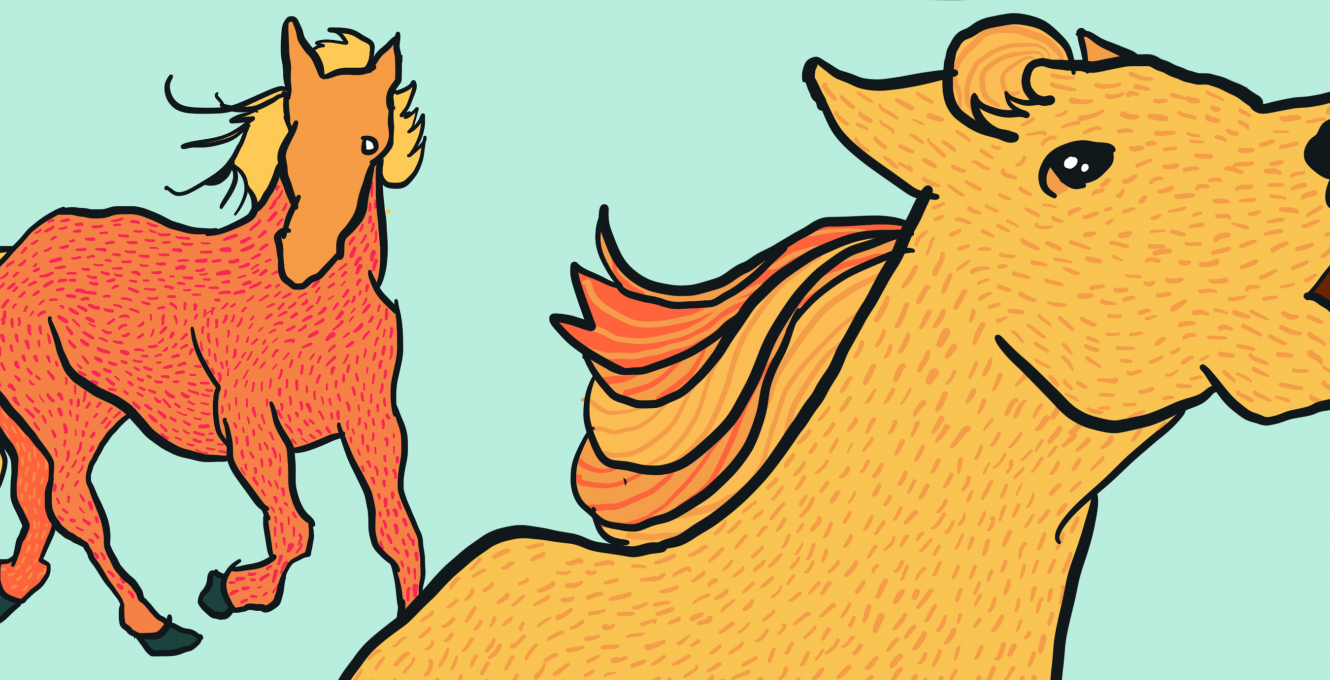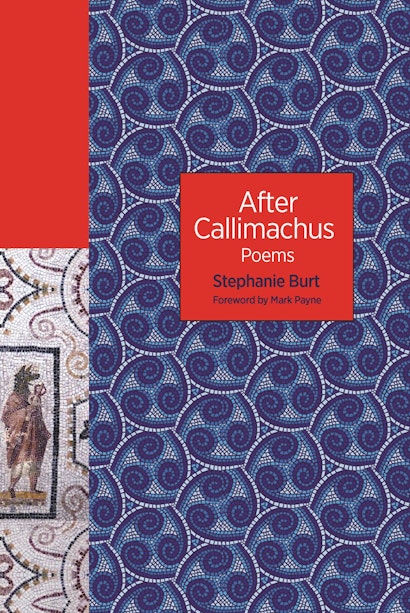Comics and illustration—siblings or cousins, related in so many ways—are deeply hybrid art forms. They rely on words together with pictures, on story (which takes place in time) together with still images, on our ability to recognize an image together with our brain’s tendency to fill int the gaps, to recognize what’s stylized and unreal.
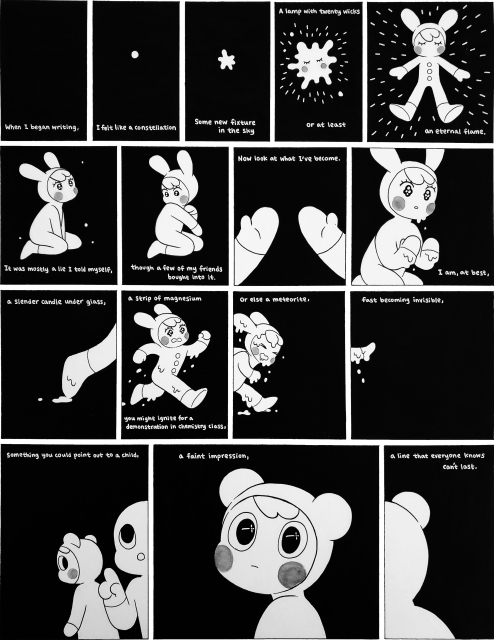
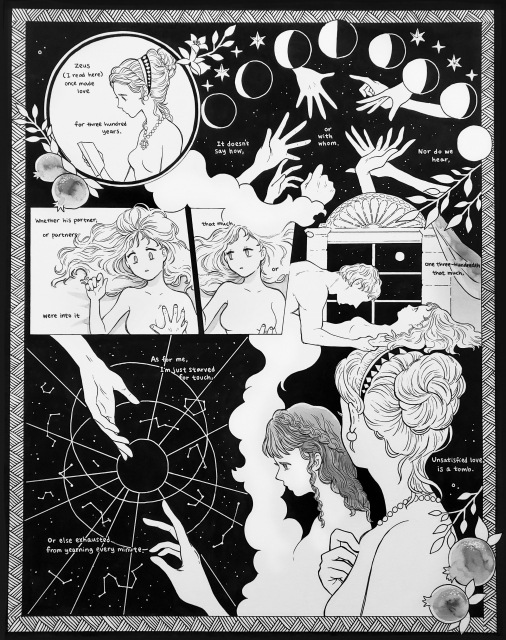
That’s why comics struck me—and a few of my artist allies and friends—as the perfect medium to amplify and respond to Callimachus, the poet of late classical antiquity whose works I’ve just finished adapting, translating, imitating, modifying, and wrenching happily out of shape for the 21st century English-speaking world. Callimachus, too, practiced a kind of hybridity, and wrote a responsive literature: he was also re-making, re-doing, re-imagining a situation his readers could already know, whether mythic or historical or part of the contemporary trans-Mediterranean scene. He knew the history of his own art form, and he could be proud (with reason) but he was never pretentious, never wanted to be the first or the only or the highest one. At one point he promised that nothing in his poetry lacked a source or a basis in prior art or in fact!

And—as my collaborator Mark Payne has emphasized in his critical prose—Callimachus embraced the minor, the small-scale, the whimsical, even the childish, or the sort of thing small-minded adults believe only suits children. (If you don’t hear a parallel to comics in that sentence, please read it again.) He wrote about sexual desolation but also about eros as a kind of play, akin to other play, to writing poetry and to children’s games. Callimachus sought intimacy: an art form capable of portraying small rooms and small problems, and an art form that could focus on the domestic and the miniature (Rhea nursing; Artemis cavorting) even when depicting the great and the gods.
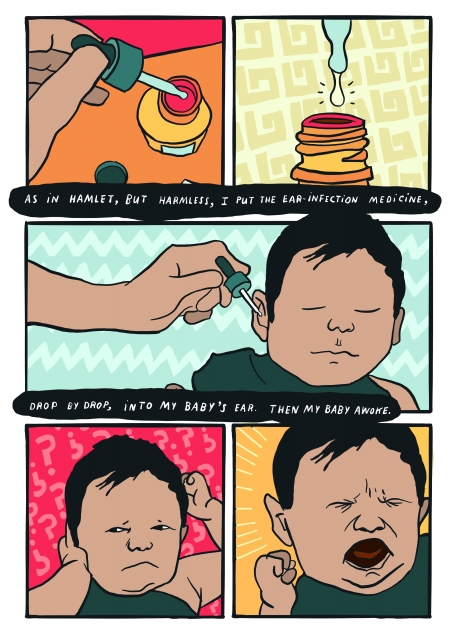
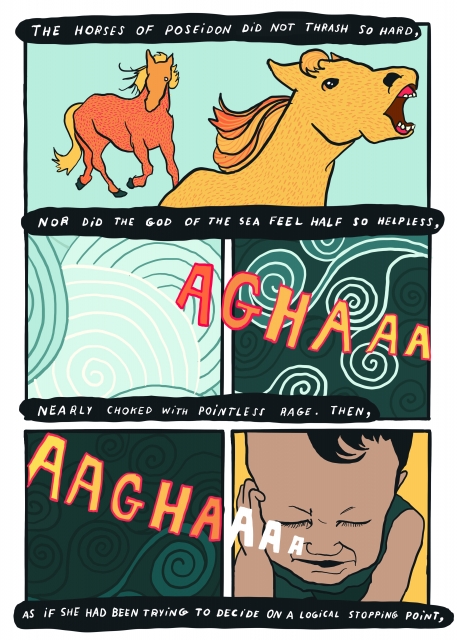
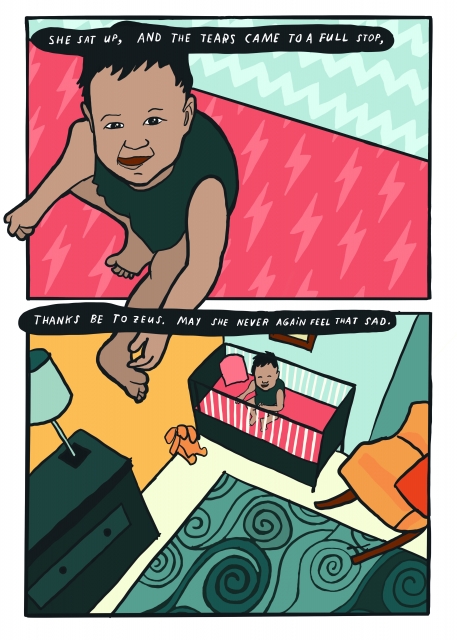
Finally, Callimachus sought variety: if you hear only one tone or one style or one approach to the world in his work, you’re not hearing enough. That’s why I love the variety in the comics we are able to present here: some focused on color, some on a clean line; some tending towards the Gothic, some finding whimsy in their big eyes and bigger astronomical curves. The human need for affection, and the need to take a baby’s temperature, and the wish to set all these grounded experiences amid the sweep of the cosmos, in colors or in black and white… that’s our set of comics, that and more; that’s also Callimachus, the poet who loved the miniature, the quirky story, the household scene, even when (as he could and did) he also retold the fate of the world.
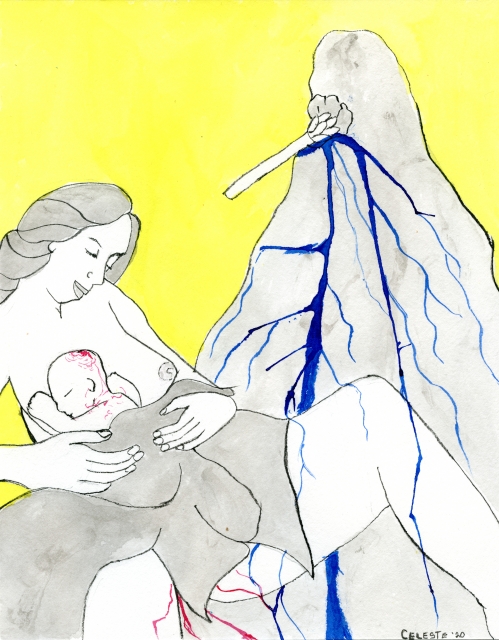
Now more than ever—now when we stay in our homes, when we make one little room an everywhere if we must—Callimachus’s version of multum in parvo, muchness in littleness, fits; these comics fit him, and his lines, and in doing so they can fit us too.
About the Author
Stephanie Burt is a poet and critic and professor of English at Harvard University. Her books include Don’t Read Poetry, Advice from the Lights: Poems, and the essay collection Close Calls with Nonsense, which was a finalist for the National Book Critics Circle Award. Her work has appeared in such publications as the London Review of Books and the New York Times Book Review. She serves as poetry coeditor for the Nation.
About the Artists
Celeste Bocchicchio-Chaudhri is a writer, artist, puppet maker, and librarian from Boston, MA. Find her online at artunboundbyceleste.com. Eowyn Evans is the Art Elemental who secretly powers Holy Crow. Holy Crow is Art, Design, and Evidence of Magic, generating illustration, photography, jewelry, and folk artifacts. Their work has been featured in The Toast, DapperQ, and Rain Taxi Press, as well as the podcast, “Gathering the Coven” and TV show “Inside Edition.” In addition to selling their wares at markets and conventions, they are currently the Prognosticator in Residence with the New York Poetry Brothel, and the founder of the Salem, MA based Witchpunk Collective, a queer, trans, and non-binary collective dedicated to rewilding art, land, and spirit. You can find more online at holycrowart.com. Lauren Haldeman is the author of Instead of Dying (winner of the 2017 Colorado Prize for Poetry), Calenday, and The Eccentricity is Zero. A graphic novelist and poet, she has received an Iowa Arts Fellowship, a Sustainable Arts Foundation Award and fellowships from the Iowa Writers’ Workshop. Find her online: laurenhaldeman.com. Mindy Yi is an artist and screenwriter from Los Angeles.
